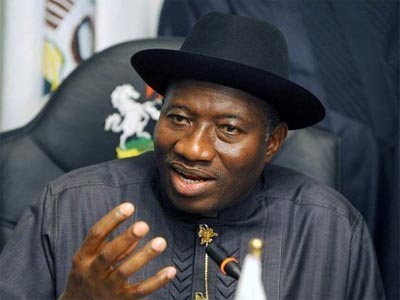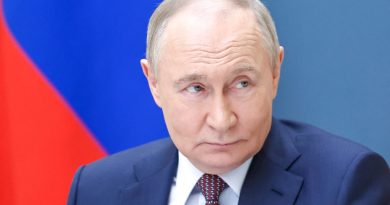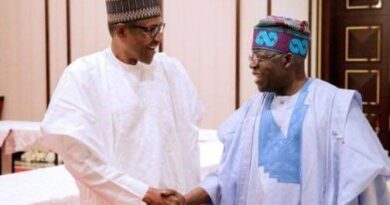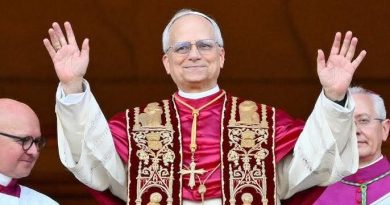Why Jonathan, Now? By Innocent Lagi
It is expectedly, a confounding idea, that former President, Goodluck Ebele Azikiwe Jonathan would contest the 2023 election. More unsettling, of course, is the possibility that the President would be running on the platform of the APC against his party, the PDP.
Naturally, his party should be perplexed with such aprospect and unexpectedly, a group within the ruling party, a powerful bloc is excited that its plans may come to fruition; the pressure it had mounted on President Goodluck Jonathan to cross and contest on the APC platform is now bearing fruit. Strange as this may sound to the ears of Europeans and Americans, in Nigeria it seems a familiar trajectory of politicians who easily cross over from one political party to another: as at today, APC has more former PDP National Chairmen and officials as members than PDP has; APC is populated by former PDP Governors, PDP legislators including, former Senate Presidents and Speakers of the House of Representatives. Even former President Olusegun Obasanjo worked to help APC defeat PDP in 2015.
Indeed, the two most prominent PDP 2023presidential hopefuls, former Vice President Atiku Abubakar and Governor Aminu Tambuwal of Sokoto state, were also very instrumental to the victory of the APC in 2015.
Opposition to President Goodluck Jonathan’s candidature is coming from both the PDP and APC.The case against Jonathan’s comeback, on the surface appear very solid and make the Jonathan’s ambition implausible. First, is the argument that such a gambit would diminish his rising international profile as champion of democracy in Africa; what happens to his image if he does not win the election,in the general election or even loses the primary elections of the APC. What shame to him! He would have become like General Yakubu Gowan who was encouraged to run for presidency from Wusasa, Zaria, his adopted hometown – only to be defeated at the very basic level by some unknown quantity, whose name, most people have forgotten.
Furthermore, he is perceived as a weakling, who ran a government, whose Ministers worked at cross purposes and could not be controlled or called to order. The current attempt by some leaders of the APC to get him to contest elections on the platform of APC it is also argued, is a sign of such weakness. His formidable opponents accuse him of being controlled by women: His wife, Diezani, Petroleum Minister and corruption poster girl, Stella Oduah, Aviation Minister, Ngozi Okonjo Iweala among others.
Most Nigerians or at least the vocal ones believe thathe led a lack lustre government which squandered the nation’s resources and did virtually nothing to improve the infrastructure of the country. He is accused of leading a corrupt government, ignored and was complicit in increasing security challenges, for he sat back in disbelief when over two hundred Chibok girls were kidnapped. Had he acted decisively, perhaps, the nation and the world would have been saved some horrors.
By far the greatest angst of his opponents is the belief that his candidature would short change the South – as he would have to give up the presidencyafter four years – he is statute barred and power would return to the North. He is accused of allowing himself to become a puppet and tool in the hands of Northern political elite who seek to perpetually dominate Nigeria. This, his opponents, argue is a dexterous ploy by the Northern oligarchy or cabal to keep ruling Nigeria and maintain its privileges byproxy.
The opponents of President Jonathan’s alleged ambition cite section 137 of the Constitution of the Federal Republic of Nigeria as amended. In 2017, the National Assembly altered the Constitution; – State Houses of Assembly concurred and was assented to by President Buhari restricts any President that completes the tenure for which another person was elected to only one additional term. Some lawyers argue that the 2017 alteration affects Jonathan. However, does the alteration have retroactive effect? What would have happened had Jonathan won the 2015 election? This may yet be another matter for the courts to settle – but some lawyers cite unrelated Supreme Court judgments which hold that laws such as the 2017 4th alteration of the constitution cannot have retroactive effect.
The debate that has ensued from the prospects of President Jonathan contesting the 2023 elections on the platform of the All Progressive Congress (APC)again bring to the fore the propensity of the Nigeria politician to be self-serving and not patriotic. For instance, most of those who sign post the abnormality of Jonathan contesting on the platform of the APC are themselves former members, government officials and party offices of (PDP), who don’t believe that “what is good for the goose is good also for the gander’’! It is disheartening that most of the reasons adduced against Jonathan have very little to do with the progress of Nigeria! Very little thought is also given to the fragile state of the country. Like the ostrich with their heads hidden in the mud, they imagine that no one can see their monstrous bodies above the soil.
It is absurd that Jonathan is being accused of being “too nice to the North” Had his successor in office been “nice” too to the South, the tension in the country would not have been so high! Nigeria requires, now more than ever a personality that would not be seen as championing an ethnic or sectional cause.
Nigeria has never been as divided as it is today. The 1966-1970 Civil war which took the divided Nigeria into so many pieces and so sharply. The divisionshave widened: its not simply about Nigeria versus the Igbos, now there are conflicts and rumours of conflicts between the Hausa and Fulani; several separatists groups have emerged and, should Nigeria break, it might be like humpty dumpty’s fall as no one may be able to put the pieces together!
True, President Jonathan paid attention to the North! The North West had nine ( with Sokoto and Zamfaraproviding two Ministers) Top key security positionsalso went to the north; several universities were established in the North, the Kaduna – Abuja standard gauge rail line prioritized and was completed and Almajiri’s schools were established to take kids off the streets! Besides the fact that these interventions demonstrated his “Nigerianess”, thereis no evidence to show that these projects were done at the expense of other regions. In any case, his intervention in the education sector only proved that he had some measure of understanding of the facts promoting insecurity in the North, hence theprogrammes aimed at taking kids off the streets to schools.
There are those who seek to incite ethnic hatred against President Jonathan arguing that he failed to make a Yoruba person Speaker of the House of the Representatives in 2011. President Buhari could not make a Yoruba person speaker in 2015, and in 2011, Asiwaju Ahmed Bola Tinubu used his foot soldiers,such as Hon. Olufemi Hakeem Gbajabiamila to scuttle the efforts of the PDP leadership to make Hon. Mulikat Akande, Speaker of the House of Representatives. Of course, President Jonathan lived to pay the price for this act of not imposing the presiding officer of the House. Speaker Aminu Waziri Tambuwal, now Governor of Sokoto state,paid Tinubu handsomely well by leading the rebellion of PDP House of Representatives against Jonathan. The House under Tambuwal, played the opposition and put President Jonathan on the spot. He later led some members to decamp to the APC, after championing the creation of a faction, NPDP, of PDP. Himself and Dr Bukola Saraki, did weaken the PDP to make the APC win the 2015 election.
The charge that President Jonathan performed badly as president in terms of creating infrastructure surely rings hollow now. In comparative terms, while President Jonathan was in charge, non-oil revenueincreased, GDP growth averaged 6%; fertilizermiddle men were displaced; education budget increased; the naira was fairly stable as Forex supply issues were fixed; Nigeria became the top destination for FDI; power generation increased and expansion of power transmission lines started; single digit inflation prevailed and local manufacturers were supported. In addition, the Nollywood sector was recognised and supported as new auto policy and National Industrial Policies were drafted and approved. Of course, the expansion and rehabilitation of the rail lines were undertaken and, the narrow gauge rail lines that were abandoned by the military in the 80’s were revamped and rail lines came back to life under his regime.
Much has been said about the volteface in President Goodluck Jonathan going to the APC. The fact is that every PDP member is a potential APC member – and until recently, except the Asiwaju Ahmed Tinubu group, every APC member is a potential PDP member.
Interestingly, of late, some ardent Tinubu supporters are speaking of opting for the PDP. In the ranks of PDP today are many top notch APC members, including Governors. In the ranks of the APC today, are several notable PDP members including former chairmen, – Audu Ogbe, Barnabas Gamade, Kawu Baraje etc. Several PDP National Secretaries, State Chairmen, Ministers, former Speakers of both Houses of Representatives and State Houses Assemblies as well as former Senate Presidents are today in the APC.
The reasons for this are obvious, unlike the West and the United States, political parties serve only one purpose: A vehicle or platform to contest elections. The Military government of General Ibrahim Babangida set the standard by creating political parties, whose constitutions were written by the Military. Office buildings were constructed and the parties were supposed to be “a little to the left” and “ a little to the right”. General Sani Abacha perfected the system and created five political parties, which late Bola Ige described as the five leprous fingers of Abacha. The PDP was created from the G8 efforts to ease out the Military – and its primary purpose has long been achieved.
Similarly, the APC was a purpose built vehicle to get the PDP out of power. Desperate groups with different and often conflicted interests, banded together to take out the PDP. The name Progressive, we clearly does not fit the party as its anti-liberal postures have paled PDP’s indiscretions into insignificance! APC can no longer lay pretence to any form of liberation.
These two parties, the APC and PDP, as with other political parties in Nigeria have no soul – no philosophies and no ideologies. Secondly, you need to cross check before you ascribe any party to any politician in Nigeria – or you may discover that he may have “defected”, “ported” or “decamped” the previous night! Vice President Abubakar Atiku for instance has been a member of the PDP, Action Congress of Nigeria (ACN), PDP, APC and now PDP.
What matters now!
Nigeria is in a terrible shape today. The prestigious Foreign Relations magazines categorizes Nigeria as a failed state. Large swathes of territories in all parts of Nigeria are under the control of bandits, terrorists, kidnappers or better still, non state actors. Nigeria has become a killing filed. Today one in every five out of school kids in the world is in Nigeria.
The economy is in tatters and government does not appear to know what to do. Nigeria, arguably, is the headquarters of light weapons and small arms in the hands of non state actors. There is palpable fear that terrorists – in Niger and Nasarawa states could make a call on Abuja any time from now.
Of truth, there is the urgent need to reset Nigeria and allow for a rethink and restrategization. All the pretenders to the presidency from the South in the APC do not have the capacity and cannot be trusted to hold Nigeria together. Taking the Presidency of Nigeria to the South West would only heighten tension – and Vice President Osinbajo has demonstrated clearly that he does not understand Nigeria, would promote bigotry and corruption and opaqueness.
The late Chief of Staff, Abba Kyari and co who started flying the Jonathan kite before he died understood clearly that Nigeria’s chance of staying together is in Jonathan taking power and dealing fairly with all groups – what clearly neither AsiwajuTinubu or Vice President Osinbajo would be able to pull through. In terms of temperament, Jonathan stands head above shoulders taller than any Nigerian in living memory. Jonathan, it was who could go on with the job while absorbing virulent attack. Not even appointees of his were allowed to bound his opponents. El Rufai in particular took his anti-Jonathan stance to treasonable levels.
One of the factors that has fuelled the separatist agitations across the country is the intolerance of the present regime of criticism and freedom of expression. During Jonathan’s regime, there was absolute freedom of expression including press freedom.
Rather therefore than antagonise Jonathan, Nigerians ought to rally round him to pull this country from the brink and provide the room for discussion.
Hon. Innocent Lagi, a former member of the Nasarawa State House of Assembly, and Former Commissioner of Justice and Attorney General of Nasarawa State, lives in Abuja.




